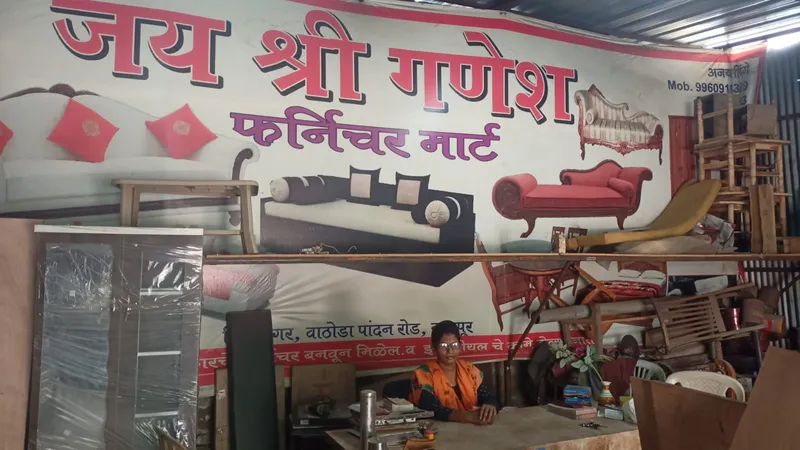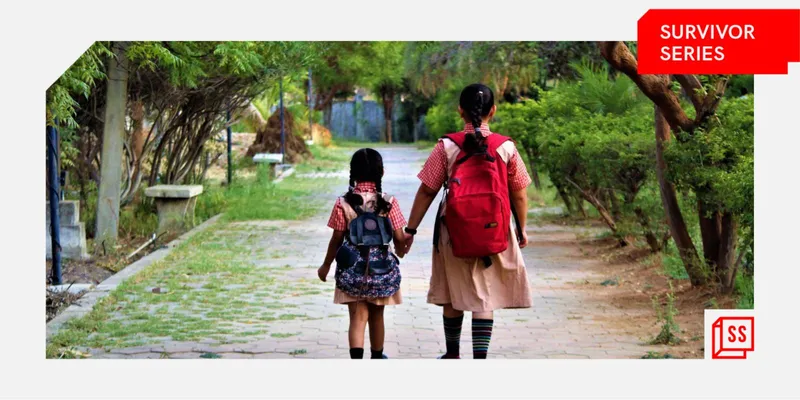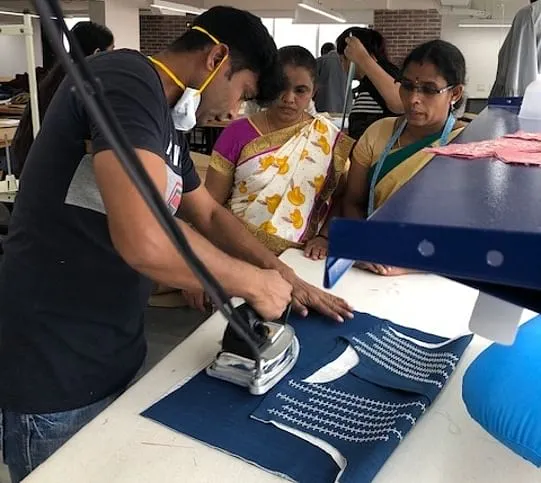The only female carpenter in a village, a headmistress who didn't give up and an NGO supporting Lambadi women: top SocialStories this week
SocialStory presents the top picks from last week which are an intersection of sustainability, innovation, and philanthropy.
This week, SocialStory caught up with Priti Ajay Hinge, who spoke candidly about being inspired by her father and the role he played in helping her become the only woman carpenter in her locality.
This successful entrepreneur is the only woman carpenter in her village
Every morning, Priti Ajay Hinge walks the dusty road from her home to her shop in Maharashtra’s Wathoda Village. The 30-year-old mother of three ignores the occasional snide remarks and whispers that being the only female carpenter – a profession regarded as an exclusively male domain– earns her. Because she is on a mission…to own the biggest furniture showroom in her village.

Priti Hinge is the only female carpenter in her village (in her shop). Trained in business development under the Skill India mission, she now dreams of opening a large showroom someday.
Priti knew very early on that she wanted to do something different. “I was always fascinated by the work the men in the village did, whether it was construction, masonry, or carpentry. I told my parents that I wanted to be like them, and work alongside them,” she says.
Her father, who is a carpenter, was amused at how different his daughter was and encouraged her to join him when he went to work. The young girl would watch closely and learn as actually working side-by-side with him would have ruffled a few feathers in the village. “People were gossiping, and my own family tried to discourage me, but my father told me to ignore them all and do what I wanted. I learnt everything just by watching him, and made my first cupboard at the age of 20, which I managed to sell,” Priti says, adding that she opened her first workshop eight years ago, after the birth of her first daughter. Her daughters today are nine, five, and three-years-old.
[Survivor Series] With support from Himmotthan, we could continue learning for students amidst COVID-19 pandemic
This week, we also delved into the story of Vinita Badshilia — a headmistress in a Government Primary School in Nainital- who came up with initiatives to get students back to learning amidst the COVID-19 pandemic.

"My name is Vinita Badshilia, and I am 37-years-old. For the last 16 years, I have been working as a headmistress at the Government Primary School, Dola, Kotabagh block, Nainital. My school comes under a very difficult category of the Uttarakhand government.
During the COVID-19 pandemic, when schools shut down, the parents and I started worrying a lot about the children’s continuity of education as we hardly had any online facilities.
How Porgai, Pearl Academy came together to support rural Lambadi women artisans
Porgai Artisans Association is an NGO society of Lambadi women artisans who hand process unique traditional embroidery designs. Based in Sittilingi Valley in the Dharmapuri district of Tamil Nadu, Porgai — which translates to “pride” in the Lambadi dialect — has been present for over two decades in the valley, providing livelihood to 60 women artisans.

Besides creating traditional silhouettes, the NGO wanted to foray into fashionable products and tied up with the students of Pearl Academy, Bengaluru, to enhance its product designs.
Recently, Pearl Academy’s students started an initiative — ‘Project Silhouette Intervention’ — along with the NGO to support the families of farmers, weavers, dyers, tailors, and artisans of the region.
How behavioural nudges can help us adopt sustainable waste management practices
Behavioural economics relies on this essential insight from human psychology that humans do not always behave in their self-interest or as ‘rational agents’. This process rests on three key principles:
- While people’s behaviour is influenced significantly by social norms, understanding the drivers of the social norms can enable change.
- People have tremendous inertia while making a choice; they prefer sticking to the default option.
- As people find it difficult to sustain good habits, repeated reinforcements and reminders of successful past actions can help sustain changed behaviour.

Effective and continuous implementation of Behaviour Change Communication (BCC) strategies is key to sustained change. It is essential to ‘nudge’ or gently steer people towards desirable behaviour, whilst preserving their liberty of choice.
Edited by Anju Narayanan






